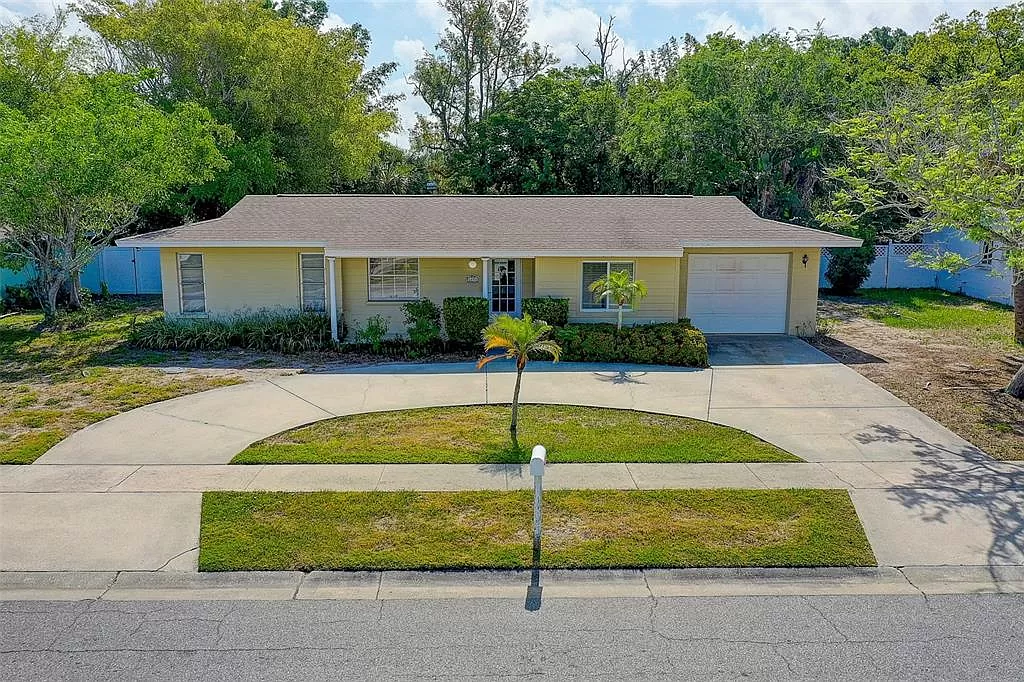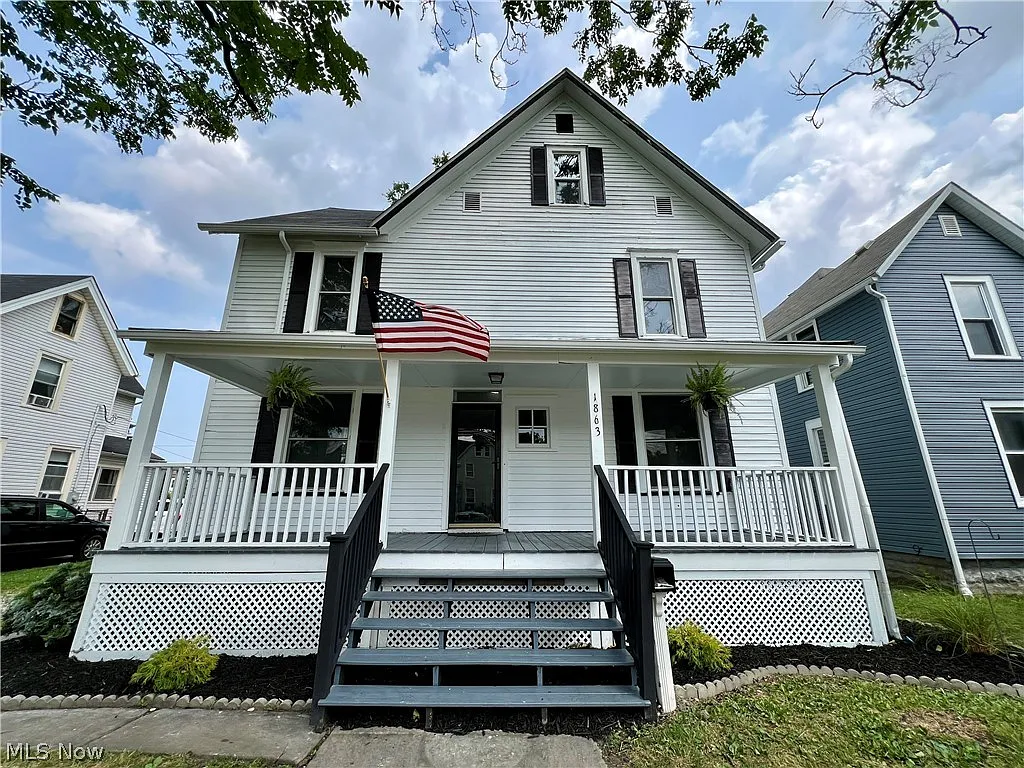Editorial Integrity
Making informed real estate decisions starts with having the right knowledge. At HomeAbroad, we offer US mortgage products for foreign nationals & investors and have a network of 500+ expert HomeAbroad real estate agents to provide the expertise you need. Our content is written by licensed mortgage experts and seasoned real estate agents who share insights from their experience, helping thousands like you. Our strict editorial process ensures you receive reliable and accurate information.
Thinking about buying a house in the US, but don’t have a green card? You don’t need to be a US citizen or a green card holder to buy a home in the United States. Whether on a temporary visa, as a foreign national, or living in the US without permanent residency, you can still purchase real estate without restrictions.
Having worked with numerous foreign buyers, from families relocating for work or school, investors looking for rental properties, to first-time buyers chasing the dream of their first US home, I have firsthand witnessed that they’ve successfully purchased without permanent residency.
This guide will cover everything you need to know, from the mortgage options available to non-residents to a step-by-step breakdown of how to secure financing and buy a home in the US, so you can move forward with clarity and confidence.
Key Takeaways:
1. Expats on different visa programs can buy a home in the US even if they do not hold a green card. There are no citizenship or residency restrictions for property ownership in the US.
2. Non-residents can qualify for foreign national mortgage programs to secure financing for their new homes without needing a green card.
3. Tax implications for foreign real estate buyers are the same as those for US citizens, with the same tax rates. There are no additional implications; foreigners are even eligible for the same tax deductions as US citizens.
Table of Contents
How to Buy Property in the US Based on Your Visa or Immigration Status?
Buying property in the United States is possible for people on various visas and immigration statuses, including temporary work visas, refugee or asylee status, DACA, and even as a non-resident alien. While no direct legal restrictions exist on foreign nationals owning property, your ability to finance the purchase and your tax obligations can vary based on your financial status.
1. Buying a Home on a Work Visa (H-1B, H-1B1, H-2A, H-2B, etc.)
You can buy property in the US on a valid work visa. Most people on work visas purchase primary residences as they seek permanent shelter compared to the hefty renting costs, although investment is also possible.
Documents You Need:
- Visa Validity: Your current valid visa is enough to proceed.
- Employment Letter: You may need a letter from your employer confirming your ongoing employment in that specific organization.
- Down Payment: Expect to pay a higher down payment, often 20% or more.
Refer to our H1B Visa Home Buying Guide to learn about the steps involved in buying a house on a work visa.
2. Buying as a Temporary Non-Resident Alien (No Green Card or US Address)
Yes, non-residents can buy property in the US even if they don’t live here full-time or hold a green card.
Things to Know:
- No Legal Restrictions on Ownership
- FIRPTA (Foreign Investment in Real Property Tax Act): A 15% withholding tax may apply when a non-resident sells US property.
- Income Tax: If you rent out the property, you must file US tax returns on that income.
- Use of Property: Foreigners buying for personal use may be exempt from specific investment-related tax implications.
To learn more about the tax implications of purchasing US real estate as a non-resident, refer to our Tax Guide.
3. DACA Recipients
Deferred Action for Childhood Arrivals (DACA) recipients can legally purchase a home in the US, especially for use as their primary residence.
Documents Required:
- Proof of Residency: A Social Security number, a tax ID, and an employment authorization document (EAD) to prove your legal stay in the US.
- Income Verification: Employment history, proof of income, like a W-2 form or pay stub, and proof of assets, like bank statements.
4. Refugees and Asylees
Refugees and asylees can apply for a green card after one year in the US, which makes it easier for them to access mortgages.
Process:
- Green Card Application: Submit Form I-94A to verify legal status.
- After obtaining a green card, they are eligible for standard mortgage programs.
- Documents Required: Income verification, employment history, and credit score.
5. Buying Property Through a Trust (NRAT – Non-Resident Aliens Real Estate Trust)
Foreign nationals who want added protection or are investing at a higher level can use a Non-Resident Alien Trust (NRAT) for real estate.
Benefits:
- Protects US Assets: NRAT shields the property from claims by your home country.
- Real Estate Planning: May reduce US real estate taxes for non-citizens.
- Flexible Ownership: Useful for managing high-value or multiple properties.
6. The Upcoming US “Gold Card” Program (Trump Card)
In early 2025, a new immigration pathway called the “Gold Card,” also informally referred to as the Trump Card, was proposed as a potential option for wealthy foreign nationals and skilled professionals seeking permanent residence in the US.
The proposed Gold Card would allow eligible individuals to obtain an unlimited right of residence in the United States, with a streamlined path to eventual citizenship. It is expected to cost around $5 million and target high-net-worth individuals, such as global investors and successful entrepreneurs.
Key Benefits of the Proposed Gold Card Include:
- Permanent Residency: Offers the right to live in the US indefinitely, like a green card.
- Citizenship Opportunity: Includes a pathway to US citizenship over time.
- No Designated Investment Requirements: The Gold Card does not restrict US legal residency for applicants who do not invest in specific projects or businesses.
- Simplified Process: This aims to reduce administrative complexities and delays often associated with current visa programs.
Buying property in the US is possible for people of all immigration statuses. HomeAbroad makes your homeownership journey even more seamless by helping you with the right financing options, documentation, and tax liabilities, depending on your unique situation.
Foreign National Mortgage Programs for Buying a House Without a Green Card
Getting a mortgage without a green card may seem tricky initially. Still, with the right mortgage option for global investors, you can easily secure financing for your dream home.
While most traditional lenders prioritize US citizens or green card holders, HomeAbroad provides tailored mortgages to foreign nationals without a Green Card or permanent residency status.
Let’s discuss these mortgage options, eligibility requirements, and how HomeAbroad simplifies the process for non-resident buyers.
1. Foreign National Mortgages
Foreign National Mortgages are tailored to buyers who do not have permanent US residency. International investors or temporary residents commonly use these loans, which are available from government-supported entities and private lenders.
However, HomeAbroad offers more flexible qualification criteria than traditional banks, making it easier for non-residents to meet the eligibility requirements.
HomeAbroad focuses exclusively on helping foreign nationals buy property in the US without needing a US credit score, W-2s, or even traditional tax documentation. Instead, we accept foreign bank statements, credit reports, and proof of international income for mortgage eligibility.
Requirements:
- Valid Identification: Passport and a valid visa
- Credit History: Foreign credit report accepted; no US score needed
- Income Proof: Foreign bank statements or employment verification
- Down Payment: Typically 20%–25%
- Property Type: Can be primary, secondary, or investment property
Learn more: Foreign National Mortgage Guide.
2. DSCR Loans (Debt Service Coverage Ratio Loans)
A DSCR loan is the perfect choice for foreign nationals looking to purchase income-generating investment properties. Instead of evaluating the borrower’s income, lenders assess whether the property’s rental income is sufficient to cover the mortgage payments.
With a DSCR loan, you can generate positive cash flow, benefit from property appreciation, finance multiple properties, and even perform cash-out refinancing on existing investments.
Requirements for Foreign Nationals:
- Valid Identification: Passport and visa or EAD
- DSCR Ratio: Preferably 1.0 or higher (loans allowed below 1.0 with a higher down payment)
- Down Payment: 25% for foreign nationals
- Credit History: No US credit score is required
- Cash Reserves: 6 months for foreign buyers
- Loan-to-Value (LTV): Up to 75% for purchases; 70% for cash-out refinances
- Property Use: Investment properties only (Residential and Commercial)
These loans open the door for foreign nationals who might otherwise fail to tap into the US real estate investment market due to a lack of credit history or permanent residency.
Let’s walk through a real-life example of how a DSCR loan works:
Real Case Study: UK Investor Buys Florida Rental Property Without US Credit History
Sam Smith, a UK citizen on an L1 visa, was eager to invest in the US real estate market and found an ideal rental property in Sarasota, Florida. The challenge? He had no US credit history, which led to repeated rejections from traditional lenders.
Sam turned to HomeAbroad, and we offered him a DSCR loan tailored for foreign nationals. Instead of relying on Sam’s non-existent US credit profile, we evaluated the property’s strong rental income potential and his financial strength overseas, thus helping him secure financing for his Florida property.
“Sam had everything except a strong US credit history, like high income, assets, and a prime rental property that could easily cover his monthly mortgage expenses. Our DSCR loan allowed him to focus on the property’s performance rather than his personal credit history, making the deal possible.”
Steven Glick, Director of Mortgage Sales, HomeAbroad
You can read the full case study here: UK Investor Secured a DSCR Loan with No US Credit History
3. ITIN Loans
ITIN (Individual Taxpayer Identification Number) loans are specifically for borrowers who do not have a Social Security Number but pay taxes in the US using an ITIN. These loans are popular among undocumented immigrants, foreign nationals on work visas, and others legally earning an income.
Requirements:
- ITIN Number (instead of SSN)
- Income Verification: Foreign or US bank statements
- Credit Score: Not required
- Down Payment: Typically 15%–25%
- Property Type: Primary or investment properties
These loans help open the real estate market to buyers who traditional banks typically disqualify for a mortgage.
5. Conventional Loans
Conventional loans are not government-backed but are supported by Fannie Mae and Freddie Mac, making them viable for EAD holders with firm financial profiles.
Requirements:
- Residency: Valid EAD and Social Security Number
- Credit Score: Minimum 620
- Down Payment: Starts at 3%, depending on other qualifications
- Income Verification: W-2s, pay stubs, bank statements
- DTI Ratio: Up to 43%
- Property Type: Primary, second home, or investment property
These loans are more stringent but offer better long-term value if you meet the criteria.
With such a wide range of mortgage options available, HomeAbroad can help you find the perfect mortgage solution for your unique needs.
Steps to Buy a Home in the US Without a Green Card
Buying a home in the US is possible even if you don’t have a green card or a US credit history. Whether you’re a foreign national, a visa holder, or a non-resident, HomeAbroad guides you throughout your home-buying journey in the US, from finding a budget-friendly property to securing a mortgage for your dream home.
Let’s discuss the steps involved in buying a home in the US without a Green Card.
1. Define Your Investment Strategy & Target Market
Use our investment-property search portal to screen metros and neighborhoods by projected cap rate, cash-on-cash return, and appreciation outlook. Short-list two or three ZIP codes before drilling down to individual properties.
2. Secure a Pre-Approval (Proof of Funds)
A US seller’s agent will want to see that you can close. Gather:
- A bank statement (or brokerage statement) shows≥ 25 % of the purchase price + 3-4 % of the estimated closing costs.
- Passport (photo page).
- Optional but helpful: proof of income (pay slips, tax returns) and a brief “source-of-funds” letter to speed compliance checks.
Pre-approval letters from HomeAbroad Mortgage are valid for 60-90 days.
3. Connect with a Local Investor-Friendly Real Estate Agent
HomeAbroad matches you with investor-savvy agents who know rental comps and STR regulations. They’ll schedule virtual or in-person tours and draft offers aligned with your cap-rate targets.
4. Sign the Purchase Contract & Start the Loan Process
Once the offer is accepted, sign the purchase agreement, wire the earnest-money deposit (usually 1-3 %), start the loan application with HomeAbroad, and upload the purchase contract and your updated bank statement on our loan portal. The loan file is formally opened at this point.
5. Order Third-Party Reports
- Appraisal (required) — you’ll pay the fee up-front; the report estimates market value and fair-market rent.
- Inspection (strongly recommended) — independent review of the property’s condition.
- Title search & insurance — HomeAbroad will help with these as part of the loan process
6. Loan Underwriting & Document Collection
An underwriter reviews your file against foreign-national guidelines (LTV limits, reserve requirements, sanctions screening). Expect requests for:
- Updated bank statement (if >30 days old).
- Proof of liquid reserves (often 6-12 months of PITI).
- Entity documents are required if buying via an LLC.
- Any missing KYC items
Turnaround: ~5-7 business days once the file is complete.
7. “Clear to Close” & Final Loan Disclosure
When all conditions are satisfied, you’ll receive a Clear to Close (CTC) and a final Closing Disclosure (CD) detailing funds to wire. Review and acknowledge electronically.
8. Closing & Funding
Choose one of three signing options:
- In person at a US title office.
- Embassy/Consulate signing in your home country (notarized with an Apostille).
- Remote Online Notary (RON) is available in many states and most HomeAbroad programs.
Typical timeline: 30-45 days contract-to-close if documents are provided promptly.
Quick Tip: Start the pre-approval step before serious property hunting; it lets you move fast in competitive markets.
After the documents are signed and wired funds are received, the loan and deed records are recorded, and you are all done. Congratulations on owning your own US property!
With proper support, personalized property searches, and expert mortgage solutions, HomeAbroad is your trusted partner throughout the journey. HomeAbroad’s team of international-friendly agents and mortgage lenders makes it easier and seamless to buy and finance a home in the US from anywhere in the world.
Tax Considerations for Buying a House in the US Without a Green Card
When buying property in the US as a non-resident, you must understand the tax obligations you’ll face, which are mainly similar to those of US citizens. Here are the key tax considerations for non-residents purchasing property in the US without a green card:
- Property Taxes: Like US citizens, non-residents must also pay property taxes on any real estate they own in the US, with rates varying by state and locality.
- Rental Income Tax: In the US, rental income is taxable if you rent your property. However, you can deduct related expenses like mortgage interest, property management fees, and maintenance costs.
- Capital Gains Tax: If you sell your property, you may be subject to capital gains tax on any profit. Non-residents are taxed on the sale of US property, and you may be eligible for exclusions if the property was your primary residence under certain conditions.
- FIRPTA (Foreign Investment in Real Property Tax Act): One key difference for non-residents is the FIRPTA withholding tax. When selling US property, the IRS imposes a 15% withholding tax on the gross sale price. It can be avoided by following specific procedures, but it adds an extra step to the selling process.
- Estate Taxes: Non-residents are subject to US estate taxes on US-based property. The threshold for estate tax liability is much lower for non-residents, so it’s essential to plan likewise if you own significant property in the US.
- Tax Treaties: Depending on your home country, tax treaties may reduce your tax liabilities or help you avoid double taxation. It’s essential to check if your country has a treaty with the US to lower the tax burden.
Refer to our Tax Guide to learn more about the taxes on purchasing US real estate as a non-resident without a green card.
Buy a House in the US Without a Green Card with HomeAbroad
Buying a home in the US without a green card might seem complicated initially, but it doesn’t have to be. With the proper support and the right mortgage options, it’s completely doable even if you don’t have a US credit score or traditional financial documents.
That’s where HomeAbroad steps in. We specialize in helping global buyers and newcomers like you find and finance property in the US without all the usual traditional roadblocks. From tailored mortgage solutions and an innovative property search platform to a team of expert agents and comprehensive end-to-end services, including LLC setup and insurance, we have built a system that genuinely works for global investors.
Whether you’re looking for your first home in the US or a smart investment property, you’re not alone. Apply today and take the first step toward homeownership in the US.

Pre-qualify for a US mortgage as an international buyer.
No US credit history needed.
FAQs
Can I buy a house in the US if I am not a permanent resident?
Yes, you can buy a house if you are not a permanent resident of the United States. Read more in our home buying guide for global buyers.
Do I need a Social Security number to buy a house in the US?
No, you don’t need a Social Security number to buy a house in the US. Instead, you can provide an alternative ID and other financial verification forms.
Can I rent the property if I don’t live in the US?
Yes, many foreign buyers purchase US property as rental investments. You can even manage your property from anywhere, even if you don’t live in the US. Learn more: US Property Management for Foreigners.























